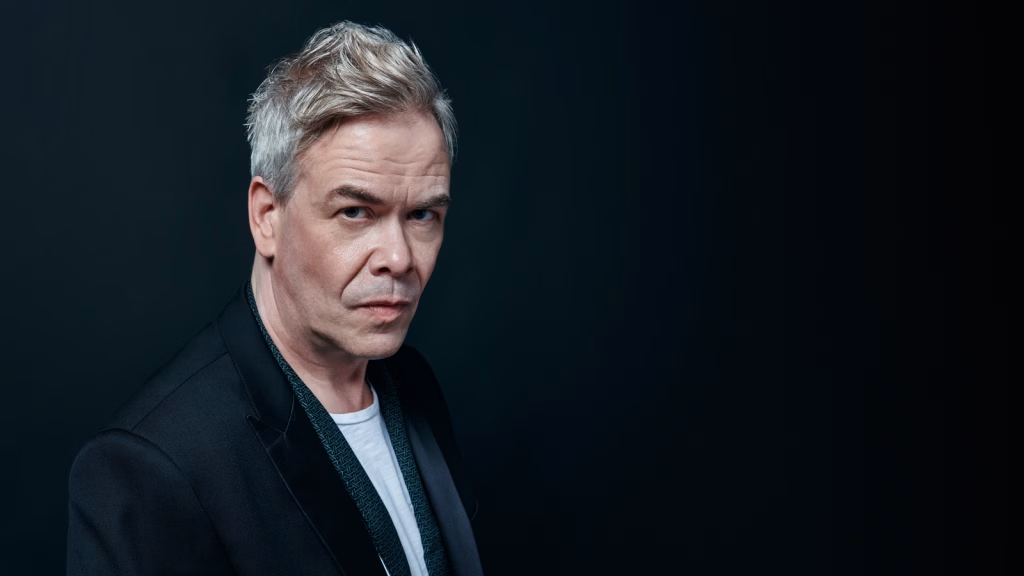
”One of the finest choral scenes since The Flying Dutchman”
Benjamin Britten’s Billy Budd will be seen for the first time at the Finnish National Opera in spring 2022. Chief Conductor Hannu Lintu shares his thoughts about the 20th century masterpiece.
Britten’s operas often deal with misunderstood or mistreated individuals. The stories also usually revolve around some moral dilemma. What do you think Billy Budd is all about?
One of Billy Budd’s two key themes is certainly the juxtaposition of law and morality.
In a system based on law, can it still be morally wrong to punish one who’s been found guilty? Britten and his librettists seem to think so.
In 1790s France, the setting of Herman Melville’s novel Billy Budd, the French revolution was reshaping the way in which society and people regarded law. The Englishmen of the opera, however, are staunch monarchists who approach the new continental whims with bafflement, even downright contempt.
Though Claggart is genuinely evil and crooked, the bookish Vere with his empty words is equally to blame for what happens: he could’ve prevented the tragedy. At Billy’s court-martial, Vere is the witness, the prosecutor, the judge and the executioner alike. In a modern society that shouldn’t be possible. The wartime setting and military discipline make it even harder for the audience to pick a side on the moral issues in Billy Budd.
Of course, on a general level, the work is also about humanity’s lamentable tendency to hate everything that’s good and beautiful. Claggart is compelled to destroy Billy for these very traits, which he spots in him immediately.
”One of the world’s most beautiful stories,” Thomas Mann has said about Melville’s novel Billy Budd, Sailor, on which the libretto of the opera is based. What do you believe he meant?
The second main theme of the opera is homosexuality and the different ways in which it affects the actions of the characters. We know this theme was not unusual in Thomas Mann’s work. Mann himself might well have followed the example of captain Vere, but I also believe he felt the old man’s regret very personally.
Herman Melville’s (1819–1891) novel Billy Budd, Sailor was only published posthumously in 1924. The delay in its publication may have been due to Melville not wanting to fuel the speculation on his own sexual orientation, sparked earlier by some themes in his novel Moby Dick.
Benjamin Britten (1913–1976), who was in an illegal but completely public relationship with the first ever captain Vere of his opera, tenor Peter Pearce, must have seen Melville’s story as a symbol of gay people’s suffering for having to hide their sexuality. One of the two librettists, the Nobel-prize-winning author E. M. Forster was also a homosexual.
This multi-layered network of secrecy and suppression has given rise to a puzzling opera, in which it’s impossible to judge exactly what and who everything is. The director must make choices. What the characters say appears to be totally different from what they mean. While they speak about politics or the weather, an internal storm rages in the background. This storm is represented by the orchestra and chorus. The action seems to pick up on two occasions, but in the end nothing happens. The maritime battle of the second act fizzles out, and the budding rebellion at the end is pushed under the deck. These are symbolic gestures from those who made the opera.
What is Benjamin Britten like as an opera composer?
Britten was born in the same time period as the new principles of 20th century music. Considering this context, it’s interesting that Britten never became a modernist. In terms of harmonics, his operas are very accessible, and they are also more idiomatic for human vocals than most operas from the latter half of the century. In this sense, Britten was a typical product of the British vocal tradition.
He is a tonal composer who spices up his music with dissonance whenever the drama so requires. He composes long, linear vocals, though without necessarily reaching for the streamlined soundscape of romantic opera. After the performance, however, we still feel like we’ve been treated to beautiful melodies. Certain themes of the colossal choral scenes are instantly memorable.
Billy Budd has only tenor, baritone and bass roles as well as boy sopranos. What does that mean for the music?
Opera as a form of art is based on the juxtaposition of different voice types, and giving that up is a brave and risky decision. In Billy Budd it’s up to the orchestra to produce the higher pitches. Treble instruments like violins, flutes and trumpets are particularly significant, as they produce the brightness of sound lacking in the vocals.
Of course it’s logical that there are no female roles in Billy Budd. The story is what it is. Its setting, however, contradicts everything that opera typically represents. Wagner or Verdi, for example, would definitely have stuck a soprano into the plot, even by force.
In Billy Budd we discover how many different sonorities and tonal variations a male voice can produce. When listening to those, it becomes irrelevant whether someone is a tenor, baritone, or bass. Instead, we start to pay more attention on the vocal colour of each individual singer.
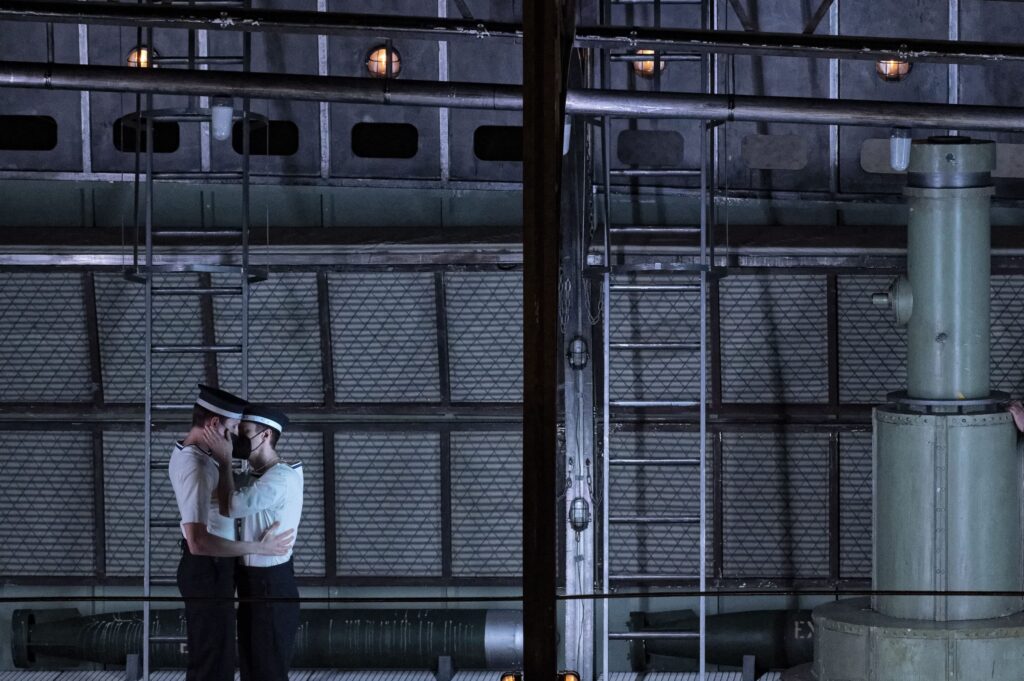
Having created a wealth of vocal music, Britten is a familiar composer to many choir singers. What is the role of the chorus in Billy Budd?
Billy Budd features extremely impressive choral scenes, which I think are the finest since Wagner’s The Flying Dutchman. The chorus is at the centre of the action. Its presence is felt even when it’s away. The chorus is a group that is oppressed for its conscience, thoughts, and collective will.
Britten’s composition for the chorus is straightforward yet affecting. His choral work, like his opera music, is very easily accessible and perhaps hence so popular with amateur choirs. Britten’s chorus often sings in unison, in a style reminiscent of Sibelius. This endows its message with more power.
Britten has a few operas, such as Billy Budd and Peter Grimes, set in a maritime environment. Can you hear the sea in the music?
The sea is one of the most common topics in the history of western music. It offers composers an abundance of possible gestures, which are even at the reach of beginners. It’s no wonder, then, that the canon is bursting with maritime-themed work. Depicting the sea via music can be dangerous, as it’s very easy to fall flat. Very few have done it convincingly like Debussy and Wagner, for example.
Britten avoids the worst pitfalls of maritime stereotypes, and despite the theme his opera lacks the more traditional ways of depicting the sea and its phenomena. Instead of superficial representations of the sea, Billy Budd’s music echoes with the constant swaying of the tall sailing ship. This also generates the persistent motion that is essential for the progress of the drama.
Interview PETRA RÖNKÄ
Photos TUOMO MANNINEN
Photo of Hannu Lintu VEIKKO KÄHKÖNEN
Recommended for you
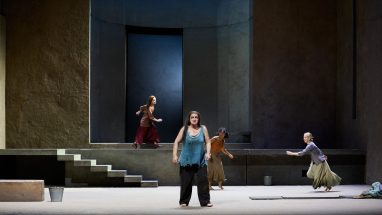
The perfect revenge?
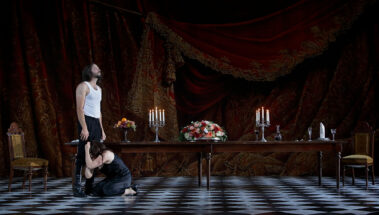
Tosca – perfectly built, well made piece, but full of rough edges
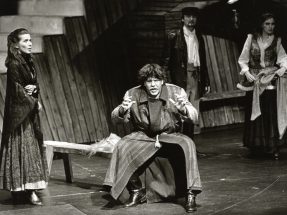
A man from a dream
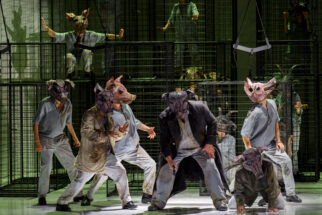
”Opera should be full of life”
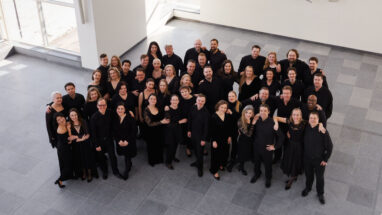
The Chorus Singers’ Association was founded 80 years ago
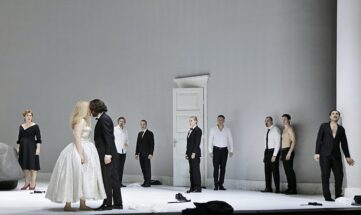
An intimacy choreographer helps create a safe working environment

“Strauss’s music reveals Salome’s innocence”


